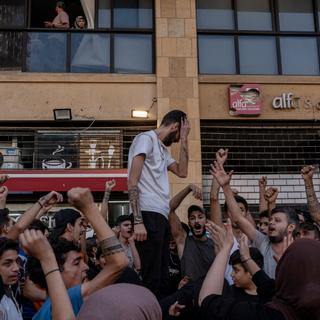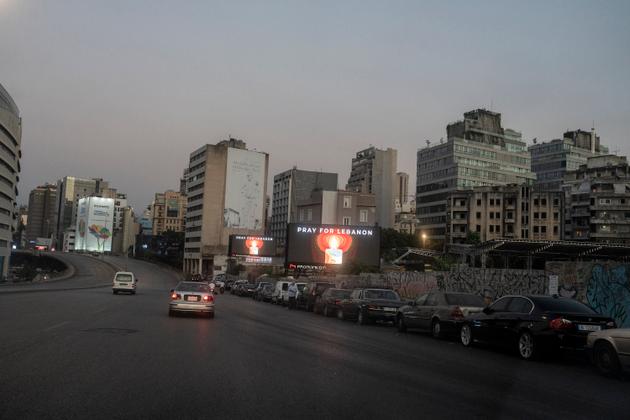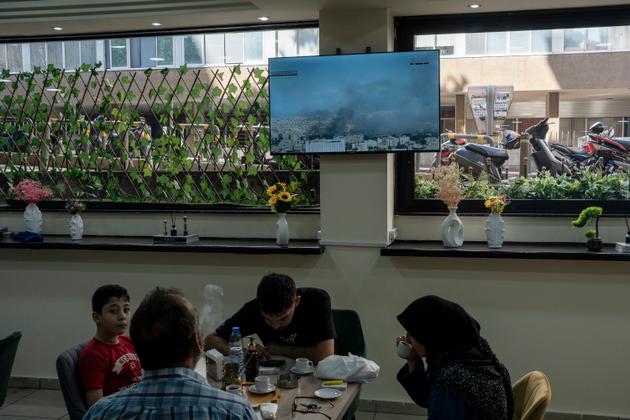


Beirut reels after the death of Hassan Nasrallah
FeatureIn the Shiite neighborhood of Khandak Al-Ghamik, residents are grappling with a mix of anger and a sense of abandonment. The violence of the Hezbollah leader's death has sent shockwaves beyond the Shiite community.
At the grocery store near the entrance to the Shiite district of Khandak Al-Ghamik in central Beirut, the cashier was inconsolable. Wearing a dark veil, the young Lebanese woman had been unable to hold back her tears since Hezbollah confirmed in the early afternoon of Saturday, September 28, that its leader, Hassan Nasrallah, had been killed in an Israeli strike the previous day in the southern suburbs, a stronghold of the Shiite party. Many Shiites had developed a sense of connection with the charismatic leader.
All around the grocery store, time felt suspended. Mute, grim-faced men sat on plastic chairs, awaiting instructions for the upcoming ceremonies. One man, like many other recruits, had bandages on his hands and face – wounds caused by the explosion of his pager in a sabotage incident blamed on Israel 10 days earlier. Men stood on the porch of a building, safe from stray bullets. Shots echoed through the air at regular intervals, in tribute to the "martyr."
In the heart of the neighborhood, the atmosphere was charged. Young people were on edge, torn between anger and a sense of abandonment. They had yet to receive any instructions from the Shiite party leadership. Local Hezbollah officials were not sure they could handle them. Journalists were asked to stay away during this time of contemplation and grief, which could boil over at any moment.


The astonishment stems first and foremost from the rapid pace at which Hezbollah, a political and military movement that had risen to the status of a powerful regional non-state actor, was decapitated. "In 10 days, history accelerated," noted Ali Mourad, professor and political scientist. "Hezbollah has suffered substantial losses, although we'll have to see what's left of the organization."
'He was everything to us'
"The community has lost its bearings. It has lost its absolute leader, who symbolized its strength and hegemony on the Lebanese political scene," Mourad continued. The sense of power and pride projected by Nasrallah, whose aura was unrivaled within the Shiite community, has given way to a feeling of vulnerability.
"Sayyed Nasrallah's death won't break the movement, but it breaks our hearts. He was everything to us, and everything to Lebanon, like a father, like an idol. We grew up with him. He showed us the way. They killed him because his goals were great," said Hussein (first name changed) while his eyes reddened. He lost nine family members in the strikes on Beirut's southern suburbs this week. The 21-year-old "Party of God" volunteer was distributing water to displaced people who took refuge the previous night in Martyrs' Square in central Beirut.
You have 56.09% of this article left to read. The rest is for subscribers only.
